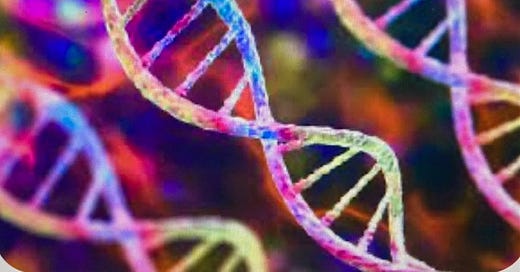If anyone is so naive as to think that the bankruptcy of 23 and Me won’t produce serious privacy breeches, they (almost) deserve the fallout. As society rushed to find out the percentages of ethnicity, parentage (oh, my… so many surprises there!) and various other bits of genetic information, they also unwittingly gave access to something that we should be safeguarding at all costs: the secret codes (and diseases) that define exactly who we are.
A few years ago I served on a board that included a number of insurance CEOs. Many, many conversations focused on how eager they were to access the genetic information of clients. And not for any good reason, I assure you; rather, it was to limit coverage. The insurance industry is a business, and as such, intent on turning a profit - no ethical issue there. But when there is an enticement to get people to agree to open their genetic material to an industry that is looking for ways to curb coverage, we have a problem. So how many of the frivolous Christmas gifts intended to figure out just how Italian (or German, or Korean, etc.) someone was, have morphed into a cache of detailed information about the health and (specifically) the future health of individuals?
In the course of my own research on the Human Genome project, I discovered that the majority of my students had not given serious thought to where their information would land. They shrugged it off as a non-issue. Perhaps we as a society are now re-thinking that position. We certainly should be.
The fun experience of digging into your own DNA has also resulted in police investigations tapping into genetic data bases as a means of identifying criminals. So what, you might ask? I would, again, remind ourselves that protection from cavalier government intrusion is a fundamental right of every American. Far too many young people who use social media have foolishly disregarded this caution. A NYT survey several years ago found that people under the age of 25 had little or no concern about the protection of civil rights if giving up those rights offered some benefit (e.g., protection). But we all need to re-think the push toward unlimited access to our personal information. Privacy is essential for well-being.
The Pandora’s box of the Human Genome Project has vast implications. The 1997 film Gattaca offers a cautionary tale about the potential abuse of genetic information. Dystopian? For sure. Implausible? Hardly. We are, I would argue, veering toward that lane. Society is self-selecting the ‘haves’ and ‘have nots’ in ways that don’t require genetic tests - education (e.g., which school one attends) is the new litmus test for advancement. And that shatters the honored tradition of the Horatio Alger notion of pulling oneself up by the boot straps and succeeding in a very competitive society. But compete, and win, many did! The blending of socio-economic classes (the secretary marrying the boss) was a means of social advancement that no longer happens - class distinctions are firmer and stickier than ever. The social boundaries that keep people apart are the antithesis of a Democracy. When we throw in the potential for genetic barriers to advancement and/or access we are in deep trouble.
I sincerely hope that everyone who has voluntarily given genetic information away will find a way to close that loop. Because there are businesses out there who are eager to clutch it away and use it against you.






This is an exceptional article. Thank you for analyzing and presenting many
of the ethical dimensions of sharing our DNA.